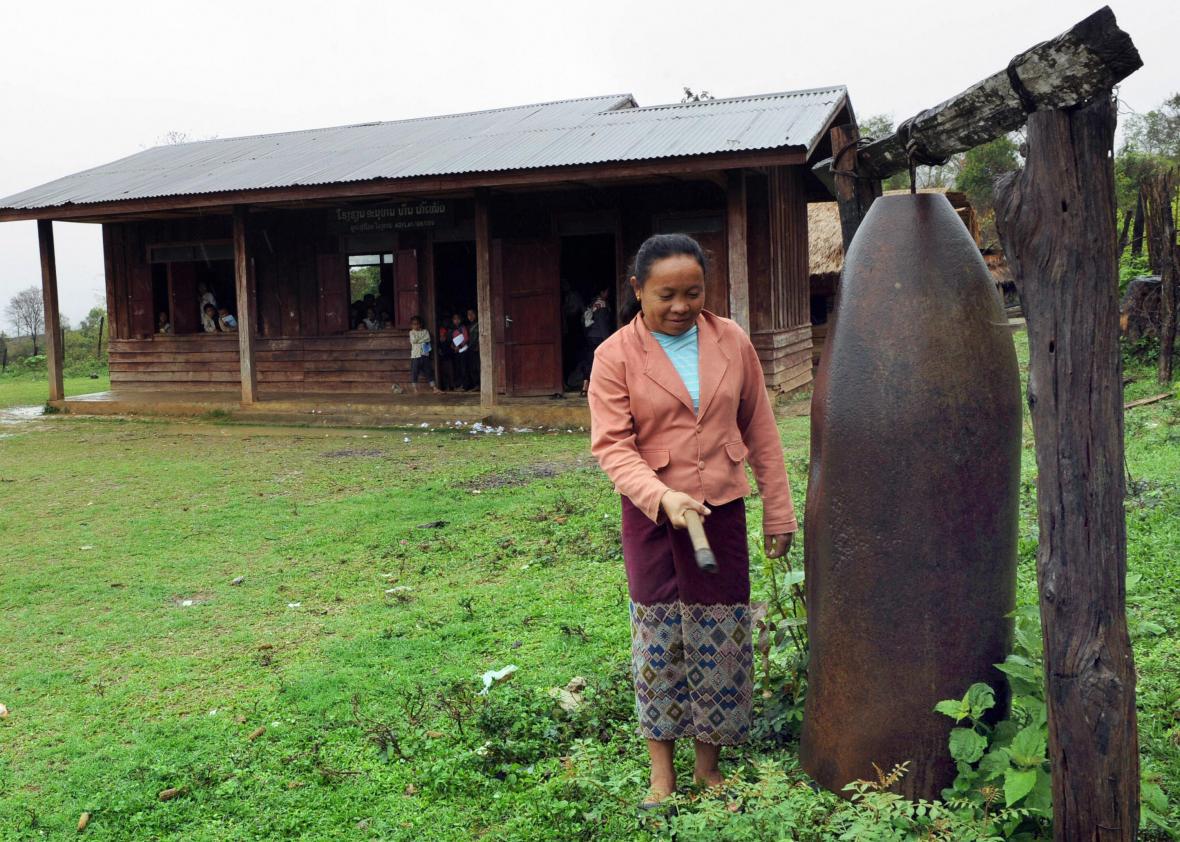Barack Obama on Tuesday became the first sitting American president to visit Laos, a country whose modern history has been in large part defined by a U.S. foreign policy decision few Americans remember. As part of a secret, CIA-run operation during the Vietnam War, aimed primarily at disrupting supply lines between North Vietnam and the Viet Cong, the U.S. dropped more bombs on Laos than it did on Germany and Japan during World War II, making the small Southeast Asian nation, per capita, the most heavily bombed country on Earth. With about 80 million unexploded bombs still scattered throughout Laos, the air campaign continues to claim civilian victims 50 years later—about 300 casualties per year, 40 percent of them children.
Obama stopped short of apologizing for the secret war, but did say it was time to acknowledge “the suffering and sacrifices on all sides of that conflict” and pledged to double U.S. funding for the effort to find and dismantle unexploded bombs.
Obama’s acknowledgment of the war in Laos comes at an interesting time in U.S. politics. Hillary Clinton has been in an awkward spot lately over her friendship and working relationship with Henry Kissinger, despised by many for his role, as Richard Nixon’s national security adviser, in overseeing the escalation of the war in Vietnam, including the secret bombing campaigns in Laos and Cambodia. The U.S. operation in Laos began in 1964 under the Johnson administration, but Nixon and Kissinger deepened and expanded U.S. involvement in the country’s civil war and continued the bombing, which didn’t end until 1973.
Bernie Sanders made Clinton’s ties to Kissinger a centerpiece of his attack on her foreign-policy judgment during the Democratic primary and it continues to be a sore spot with left-wing Democrats. Kissinger was rumored to be planning an official endorsement of Clinton last week, along with fellow GOP foreign-policy grandee George Shultz, but the two announced unexpectedly on Friday that they wouldn’t be endorsing anyone after all.
Obama’s stopover in Laos also comes a few days after the release of a new report that found that, despite an international ban, cluster bombs are being used with impunity in the conflicts in Syria and Yemen. Cluster bombs disperse tiny bomblets over a wide area, causing a particularly high number of civilian casualties, often years after they are dropped. They account for about half of the unexploded ordnance still on the ground in Laos and 30 percent of accidents there, according to the Laotian governments. One hundred and nineteen* countries have signed a treaty banning the bombs, but not the United States and Russia, where most of them are made. While the U.S. doesn’t drop cluster bombs itself anymore, there’s strong evidence that U.S.-ally Saudi Arabia is dropping American-made cluster munitions in Yemen.
Perhaps, as he visits Laos, Obama may wonder what actions his successors will one day feel compelled to acknowledge but not quite apologize for.
Correction, Sept. 7, 2016: This post originally misstated the number of countries that have signed the treaty banning cluster munitions. It is 119 not 116.
